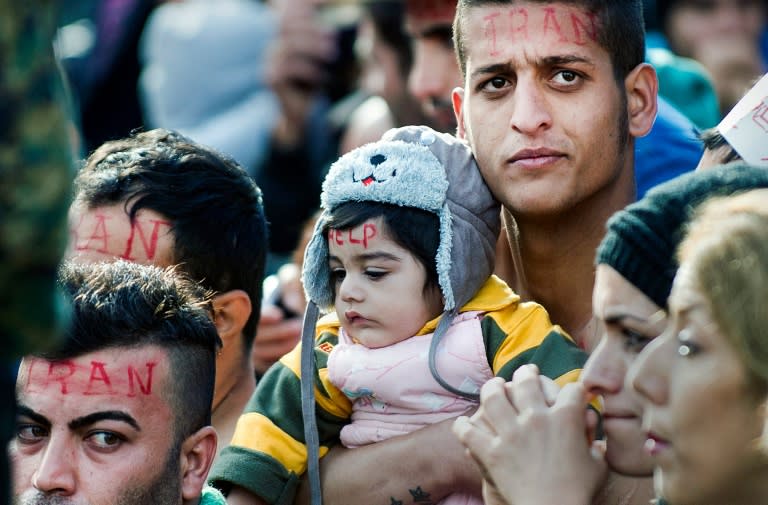Biden calls for greater cooperation at Europe's borders
US Vice President Joe Biden called at a Western Balkans summit Wednesday for greater cooperation at European borders to deal with the flow of migrants and to fight terrorist threats. Biden's attendance at the meeting of presidents in Zagreb was seen as highlighting Washington's renewed interest in the fragile Western Balkans as the region deals with an unprecedented influx of refugees and other migrants. "It is clear there is a need to improve cross-border cooperation, information sharing and to deal with the flow of refugees while stepping up our ability to counter terrorist threats as well," Biden said afer the summit. He said the United States would continue to pitch in to help "the most vulnerable ones", particularly with winter approaching, but he stressed that "more needs to be done". In recent months, hundreds of thousands of migrants and refugees fleeing war and poverty in the Middle East, Asia and Africa have travelled from Greece along the so-called Balkans route to northern Europe. The crisis has at times strained relations between Western Balkan neighbours and former foes as they grapple with how best to manage the huge influx. The Brdo-Brijuni Summit brought together the presidents of European Union countries Slovenia and Croatia and those of aspiring EU members Serbia, Macedonia, Albania, Bosnia, Kosovo and Montenegro. EU President Donald Tusk also attended. In a joint statement released after the summit, they said the migrant crisis posed "an unprecedented challenge" which required dialogue to protect EU borders and "substantially alleviate pressure on afflicted countries". They also called for global solutions to tackle "radicalism, violent extremism and terrorism", referring to the "brutality" of recent deadly attacks in Paris and elsewhere. - 'Potential powder keg' - Some 4,000 police officers were out in force in the Croatian capital and some schools were closed downtown ahead of the afternoon summit. "The US is arriving in a bid to avoid destabilisation of the region, notably in the light of new threats," said Lidija Cehulic-Vukadinovic, international relations professor at Zagreb University. "The Balkans remains a potential powder keg," she told AFP. Analysts suggested Washington's interest was returning after it ceded watch over the Balkans to the European Union and shifted its focus to the Middle East in the 1990s. But Biden insisted the United States had "never left". "Anchoring the Balkans in NATO and EU... from our perspective seems to be the best way to promote stability, security and prosperity," he said. "Accession pushes the countries to make tough but necessary reforms." The Western Balkans are burdened by the legacy of the 1990s wars that accompanied the break-up of the former Yugoslavia, and it was a US-brokered peace deal 20 years ago that ended the bloodiest conflict in Bosnia. The region still faces numerous challenges, from high youth unemployment and slow economic reforms to fragile inter-ethnic relations and threats from a small number of homegrown Islamic extremists, particularly in Bosnia. Countries on the migrant route said last week that they were restricting the crossings of economic migrants and allowing in only people from war-torn countries such as Syria, Iraq and Afghanistan, sparking protests from others stuck at the Greek-Macedonian border. The United Nations has warned that the tightening of restrictions is creating an increasingly untenable situation, stranding many outdoors as temperatures plunge.

 Yahoo Finance
Yahoo Finance 


